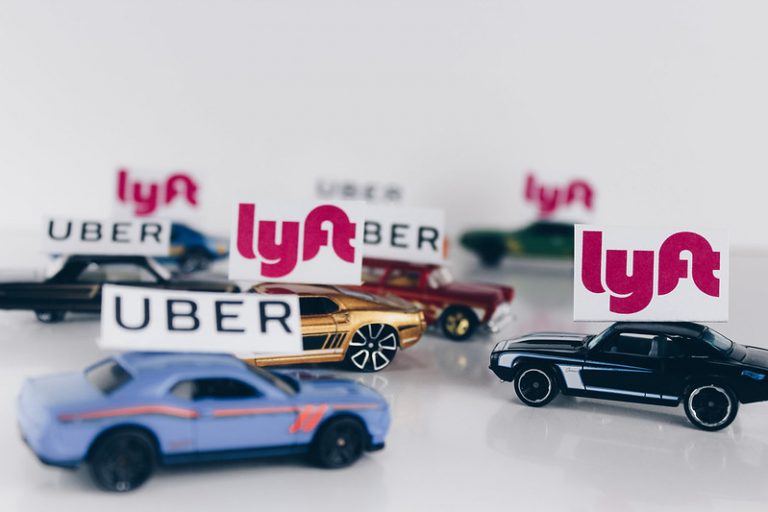
GIG ECONOMY
Uber and Lyft ordered by judge to classify drivers in California as employees
BY DUNCAN RILEY
A judge in California ruled today that Uber Technologies Inc. and Lyft Inc. must classify their California-based drivers as employees to comply with state law.
California Assembly Bill 5, signed into law Sept. 18 and in effect since January, forces companies to classify gig-economy and freelance contractors as employees if they work more thanr a certain number of hours. Supporters say the law protects worker rights such as minimum wage, unemployment insurance, paid family leave, workers’ compensation and paid sick leave.
The ruling by Judge Ethan Schulman of the San Francisco Superior Court came after the city attorneys of Los Angeles, San Diego and San Francisco, along with California Attorney General Xavier Becerra, filed a lawsuit against both Uber and Lyft, arguing that both companies were violating AB 5 by misclassifying drivers.
Schulman found that Uber’s and Lyft’s refusal to convert their drivers to employees was a “prolonged and brazen refusal to copy with California law” and that “defendants may not evade legislative mandates merely because their businesses are so large that they affect the lives of many thousands of people.”
As Protocol noted, the judgment will not go into effect for 10 days, giving both companies a window to appeal the ruling — which both will do.
“Drivers do not want to be employees, full stop. We’ll immediately appeal this ruling and continue to fight for their independence,” Uber said in a statement. “Ultimately, we believe this issue will be decided by California voters and that they will side with drivers.”
The latter refers to a push by Uber, Lyft and DoorDash for Proposition 22, a ballot measure that asks voters to exempt them from the law. A yes vote on the proposition would define “app-based transportation (rideshare) and delivery drivers as independent contractors and adopt labor and wage policies specific to app-based drivers and companies.”
Although Uber is arguing for its drivers to remain independent contractors, Chief Executive Officer Dara Khosrowshahi said in an op-ed in The New York Times that gig workers deserve better and that there should be a “third way” to classify those working in the gig economy.
Khosrowshahi suggested that companies that rely on gig workers should be required by law to create benefit funds that can be used by workers for anything from health insurance to paid time off. Referring specifically to the California lawsuit, Khosrowshahi claimed that the classification of workers as contractors versus employees was a “false choice.”
“Our current system is binary, meaning that each time a company provides additional benefits to independent workers, the less independent they become,” Khosrowshahi said. “That creates more uncertainty and risk for the company, which is a main reason why we need new laws and can’t act entirely on our own.”
BY DUNCAN RILEY
A judge in California ruled today that Uber Technologies Inc. and Lyft Inc. must classify their California-based drivers as employees to comply with state law.
California Assembly Bill 5, signed into law Sept. 18 and in effect since January, forces companies to classify gig-economy and freelance contractors as employees if they work more thanr a certain number of hours. Supporters say the law protects worker rights such as minimum wage, unemployment insurance, paid family leave, workers’ compensation and paid sick leave.
The ruling by Judge Ethan Schulman of the San Francisco Superior Court came after the city attorneys of Los Angeles, San Diego and San Francisco, along with California Attorney General Xavier Becerra, filed a lawsuit against both Uber and Lyft, arguing that both companies were violating AB 5 by misclassifying drivers.
Schulman found that Uber’s and Lyft’s refusal to convert their drivers to employees was a “prolonged and brazen refusal to copy with California law” and that “defendants may not evade legislative mandates merely because their businesses are so large that they affect the lives of many thousands of people.”
As Protocol noted, the judgment will not go into effect for 10 days, giving both companies a window to appeal the ruling — which both will do.
“Drivers do not want to be employees, full stop. We’ll immediately appeal this ruling and continue to fight for their independence,” Uber said in a statement. “Ultimately, we believe this issue will be decided by California voters and that they will side with drivers.”
The latter refers to a push by Uber, Lyft and DoorDash for Proposition 22, a ballot measure that asks voters to exempt them from the law. A yes vote on the proposition would define “app-based transportation (rideshare) and delivery drivers as independent contractors and adopt labor and wage policies specific to app-based drivers and companies.”
Although Uber is arguing for its drivers to remain independent contractors, Chief Executive Officer Dara Khosrowshahi said in an op-ed in The New York Times that gig workers deserve better and that there should be a “third way” to classify those working in the gig economy.
Khosrowshahi suggested that companies that rely on gig workers should be required by law to create benefit funds that can be used by workers for anything from health insurance to paid time off. Referring specifically to the California lawsuit, Khosrowshahi claimed that the classification of workers as contractors versus employees was a “false choice.”
“Our current system is binary, meaning that each time a company provides additional benefits to independent workers, the less independent they become,” Khosrowshahi said. “That creates more uncertainty and risk for the company, which is a main reason why we need new laws and can’t act entirely on our own.”
Photo: Stock Catalog/Flickr
No comments:
Post a Comment